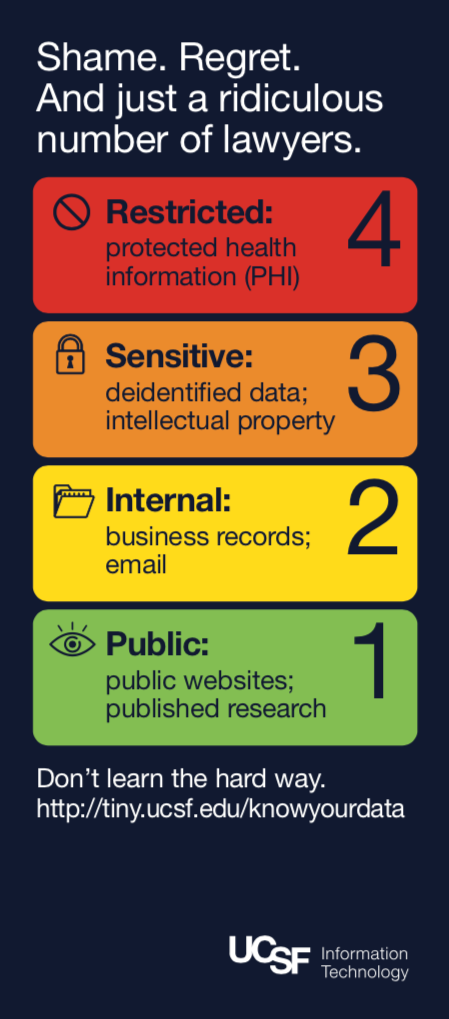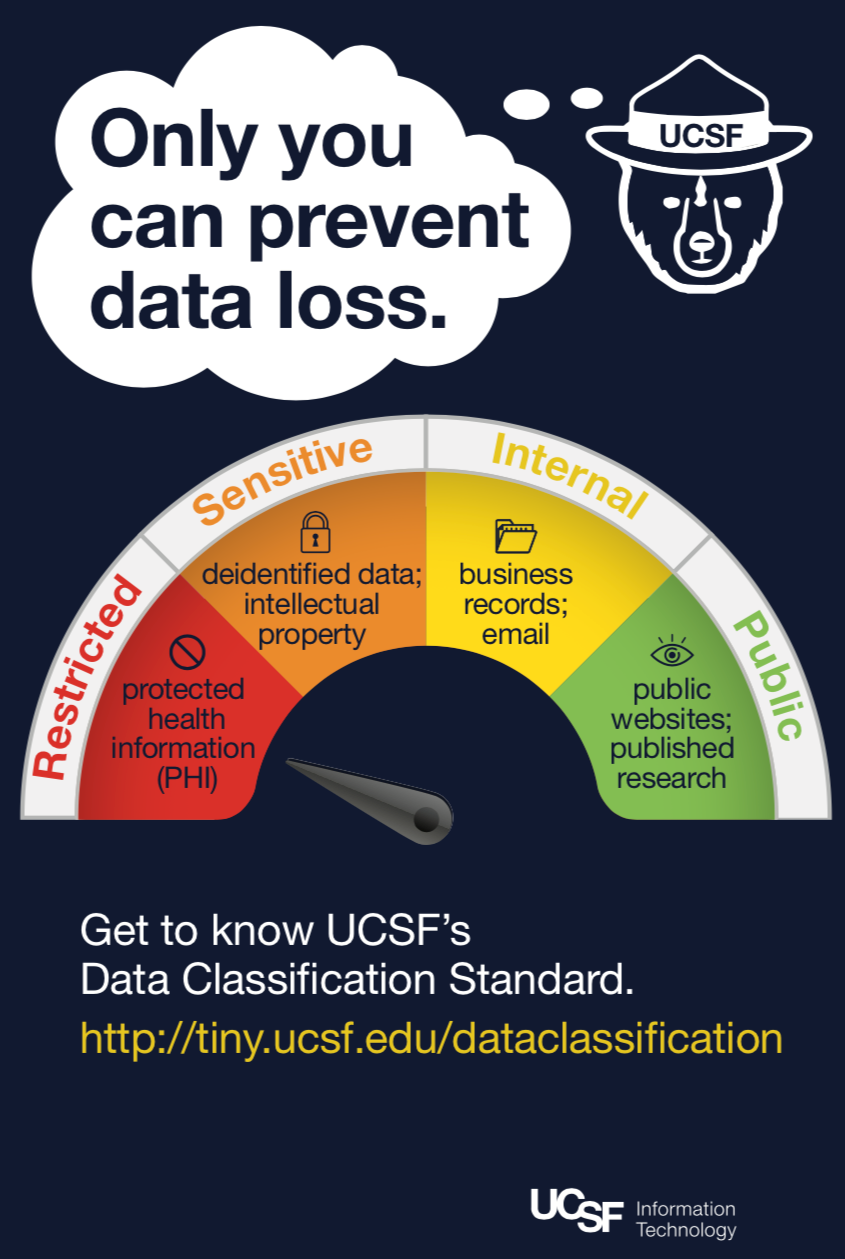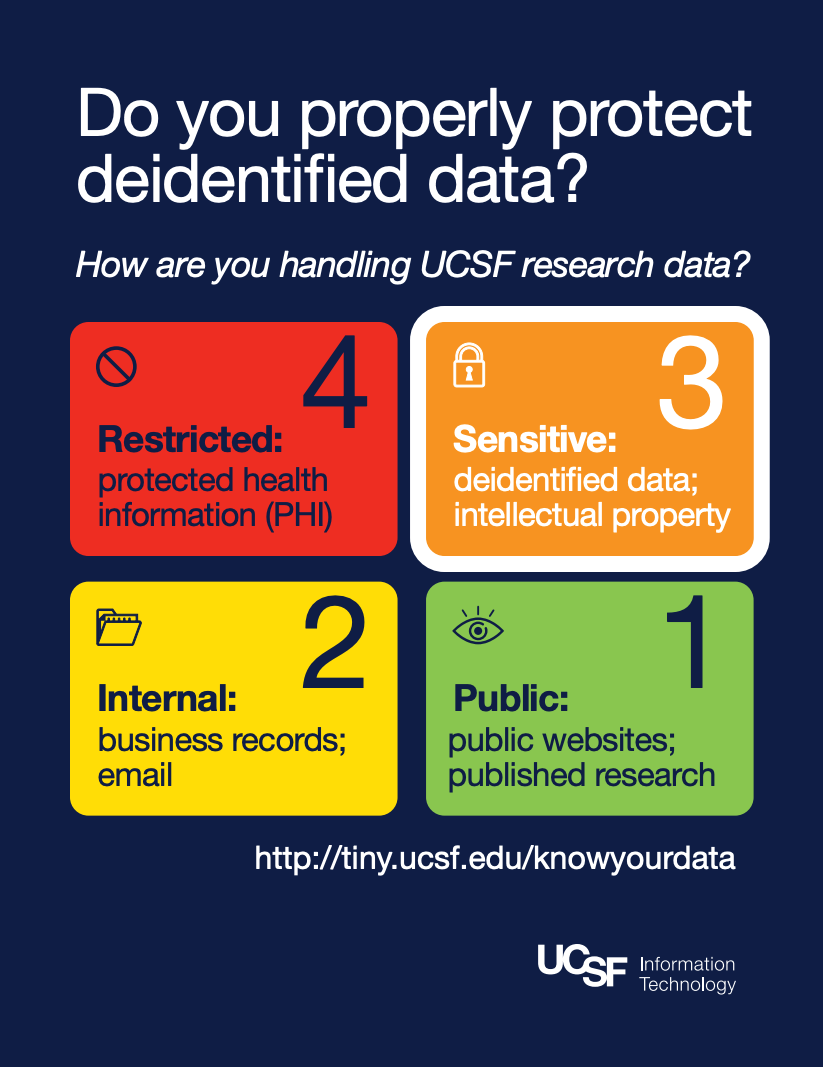By Traci Farrell. True or false: Different types of UC data require different levels of protection.
Do I even have to tell you the answer? (Hint: It’s true.)
At UCSF, our data powers our work in healthcare, research, education, and administration. In short, our data is everything to our mission of advancing health worldwide. Like all UCs, our data landscape is vast – we generate and work with many types of data – which is why understanding our data classification standard is so important.
Across UCSF, mentions of “P3” and “P4” data have regularly been coming up in conversation, and the ongoing implementation of the IS-3 Electronic Information Security policy underscored the need for a data classification awareness campaign. The IS-3 policy alone references “classification” 23 times!
To this end, UCSF’s SOM Tech created an enterprisewide data classification campaign focused on:
- General community awareness to reinforce individual, professional responsibility to properly protect UCSF data while fostering an alert, security-conscious culture
- Research community focus to increase understanding of data classifications with emphasis on P3 (sensitive) and P4 (restricted) data types
Knowing the campaign would focus on – let’s face it – dry policy material, we prioritized catchy taglines and bold colors ensuring that, on bulletin boards across campus, our navy flyers stood out among a sea of white ones.
We targeted various distribution channels and created:
- Shuttle posters
- Digital signs
- Bookmarks
- 5×11 flyers
- Large easel posters
- Newsletter articles
- New UCSF IT website content
The simple, colorful visuals put up liberally on bulletin boards, elevator banks, building lobbies, and shuttles were attention-grabbing and, in conjunction with newsletter distribution, led to an increase in IT website visits.
UCSF IT Security sponsored the campaign, and we partnered with them to include data classification content during their outreach for October’s National Cybersecurity Awareness Month and at events throughout the year.
We increased awareness by distributing bookmarks and handouts during IS-3 policy implementation meetings across campus, and now that so many are working remotely, we continue to present this information during Zoom meetings and by sharing materials digitally through Box. We hope, in however small a way, the campaign contributes to a safer and more aware UCSF community.
 Traci Farrell is communications lead, School of Medicine Technology Services, UC San Francisco.
Traci Farrell is communications lead, School of Medicine Technology Services, UC San Francisco.



